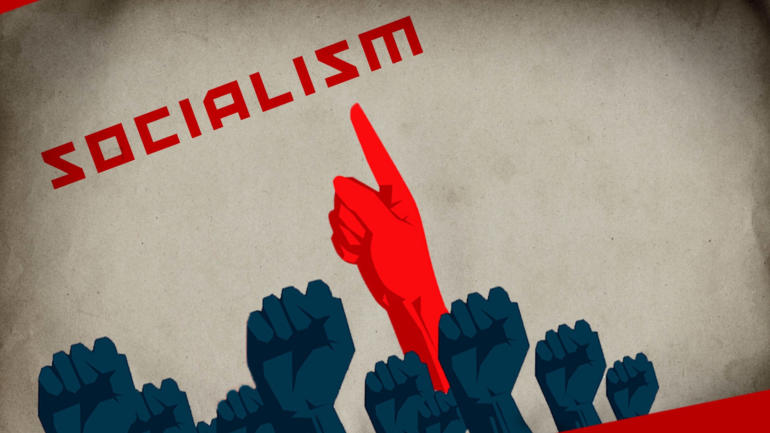BLOG 092520: What is Socialism? Part 1
What is SOCIALISM?
Part 1

With the important election coming up, it will be helpful to fully understand the various terms that are put out there by the media.
As a Washington, D.C native who:
- worked in the House of Representatives for three summers (I was there during the Voting Rights Act of 1965)
- has three ex-Secret Service agent family members, and
- went to school with a number of sons of political figures (R. Kennedy; E. McCarthy), I pay close attention to what's happening and work to stay educated.
This blog will provide you with a working definition of socialism. I hope you find this information useful as we near the elections.
What is socialism? (a brief definition)
Socialism is an economic system in which the means of production and distribution are controlled by the government or the workers and decisions on the allocation of resources are made centrally or collectively.
It's in contrast to capitalism, which operates on the principles of private ownership, profit, and competition within a free market.
Socialism is also a social ideology. It shares the general view that people are basically cooperative, not competitive, and systems like capitalism are harmful to the common welfare.
The term "socialism" came into common use in the early 19th century as a converse to individualism, especially the ideas of Adam Smith, the Scottish philosopher who wrote, The Wealth of Nations.
European countries (and other industrialized nations) are often touted as socialist but really are mixed-market economies, in which private enterprise is balanced by limited public ownership and extensive government regulation and social planning.
In summary, socialism is both an economic system and an ideology.
Look for more on this subject in later blogs.
As always, I welcome your comments.
![]()
Jim Castiglia, Founder
Business Street Fighter Consulting, LLC
919-263-1256
http://www.BSF.Consulting ![]()
[Resource: The World of Ideas—A Dictionary of Important Theories, Concepts, Beliefs, and Thinkers by Chris Rohmann]
